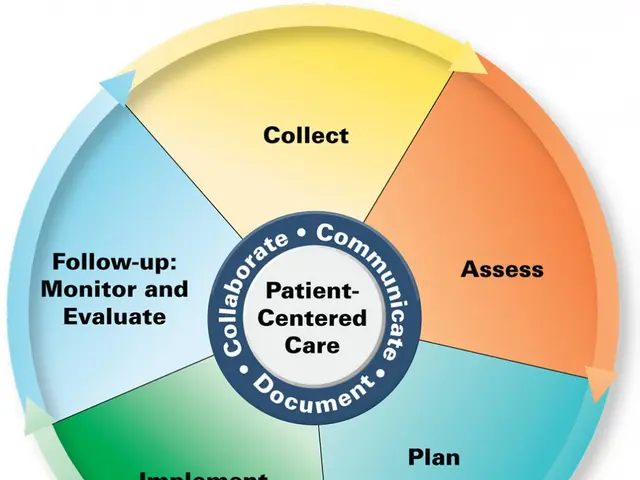Organ Donation: Should the System Be an 'Opt-In' or 'Opt-Out' Approach?
The Great Organ Donation Debate: Opt-In vs. Opt-Out
Worldwide, approaches to organ donation vary wildly. But which method - opt-in or opt-out - reigns supreme? To find the answer, a team of researchers from the UK delved into the organ donation policies of 48 countries.
When you choose the opt-in approach, it's up to you to sign up on a register to donate your organs post mortem. On the other hand, opt-out systems assume your consent for organ donation unless you specifically request otherwise before passing.
Prof. Eamonn Ferguson, the study's lead researcher from the University of Nottingham, UK, recognizes that the active nature of both systems can lead to flaws:
"People may not act for numerous reasons, including loss aversion, effort, and the belief that policy makers have already made the 'right' decision."
However, inaction in an opt-in system can result in individuals who'd want to donate omitting to do so (a false negative). Conversely, inaction in an opt-out system could lead to an individual who doesn't desire to donate becoming a donor (a false positive).
The US currently sticks to an opt-in system, with the US Department of Health & Human Services reporting 28,000 transplants facilitated last year through organ donors. Unfortunately, around 18 people still die daily due to a dearth of donated organs.
To In or To Out?
The team at the University of Nottingham, University of Stirling, and Northumbria University examined the organ donation systems of 48 countries over a 13-year period – 23 utilizing opt-in and 25 employing opt-out.
The researchers measured the overall number of donors, the number of transplants per organ, and the total kidneys and livers transplanted from both deceased and living donors.
They discovered that countries adopting opt-out systems had higher total numbers of kidneys donated - the organ most in demand for organ transplants. Opt-out systems also dominated in the overall number of organ transplants.
Opt-in systems, however, boasted a higher rate of kidney donations from living donors. The influence that policy had on living donation rates "has not been reported before," says Prof. Ferguson, "and is a subtlety that needs to be highlighted and considered."
The authors acknowledge limitations in their study, such as failure to differentiate between varying degrees of opt-out legislation and neglecting to account for other factors affecting organ donation.
Moving Onward
The authors submit that their results – published in BMC Medicine – show that "opt-out consent may lead to an increase in deceased donation but a reduction in living donation rates." Additionally, they suggest that opt-out consent is tied to an increase in the total number of livers and kidneys transplanted.
They suggest that their findings could guide future policy decisions, but cautiously emphasize the need for rigorous data collection regarding international organ donation and its publication.
Prof. Ferguson suggests that further studies should explore donors' perspectives through surveys and experiments to uncover issues related to beliefs, preferences, and attitudes towards organ donation.
The authors remark that countries employing opt-out consent still grapple with organ donor shortages. A shift in the system of consent probably won't resolve such an issue. Instead, they recommend potential solutions like revisions to consent legislation or adopting aspects of the "Spanish Model."
Spain boasts the world's highest organ donation rate, largely credited to measures like a national transplant coordination network and enhanced public information on organ donation.
Recent discussions have centered around the use of animal organs for human transplants as a solution to the organ shortage. However, this raises additional ethical and logistical questions that require further debate.
[1] Organ Donation Saves Lives: Facts About Organ Donation and Transplantation. (2019, December 03). Retrieved March 30, 2021, from https://www.donatelife.net/facts-and-statistics/[2] Wilkinson, D., Wood, N., Martins, S., Molimard, M., & Sans, M. (2016). The Impact of Implementing an Opt-Out System on Deceased Organ Donation: A Systematic Review. Transplant International, 30(1), 1–19. https://doi.org/10.1111/tri.13041[3] Halman, A., Kahrilas, P. J., & Harrison, S. (2005). Organ donors in European countries: a comparative study of waiting list mortality rates and demand for transplantable organs. American Journal of Transplantation, 5(8), 1471–1478. https://doi.org/10.1111/j.1600-6143.2005.00174.x[4] Report on Organ Donation and Transplantation in the European Union (2010) and Council of Europe Member Countries – TIMP Working Group. (July 19, 2011). Retrieved March 30, 2021, from https://www.transplanteurope.org/Portals/0/docs/policy/Council/Report_TIMPEU2010.pdf[5] Grau, M. V., García-Martínez, L. M., & Rubio, V. (2005). Organ donation after circulatory death (DCD) in Spain: analysis of a national registry. The Lancet, 366(9493), 1235–1239. https://doi.org/10.1016/S0140-6736(05)67394-8
- The study by the research team from the University of Nottingham, UK, suggested that opt-out consent might lead to an increase in the total number of livers and kidneys transplanted, but it could also result in a reduction in living donation rates.
- In the comparison of 48 countries' organ donation systems, opt-out systems were found to have higher total numbers of kidneys donated, with a dominance in the overall number of organ transplants.
- The authors of the study, recognizing the limitations in their research, suggested that future policy decisions should be guided by their results and stressed the importance of rigorous data collection regarding international organ donation.
- Scientists debate the use of animal organs for human transplants as a solution to the organ shortage, raising additional ethical and logistical questions that require further discussion in the context of health-and-wellness and medical-conditions.





